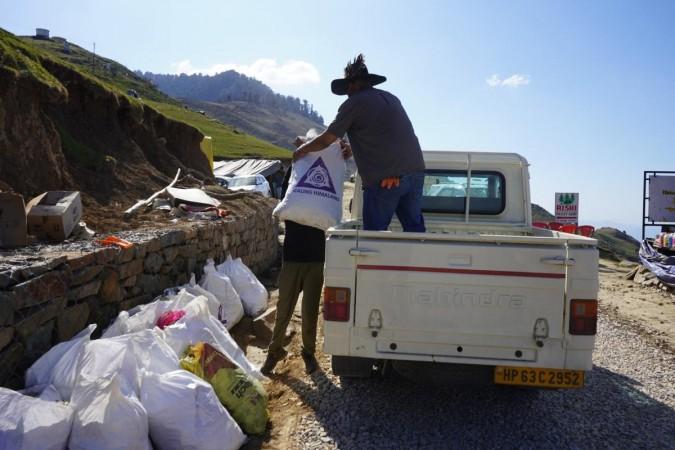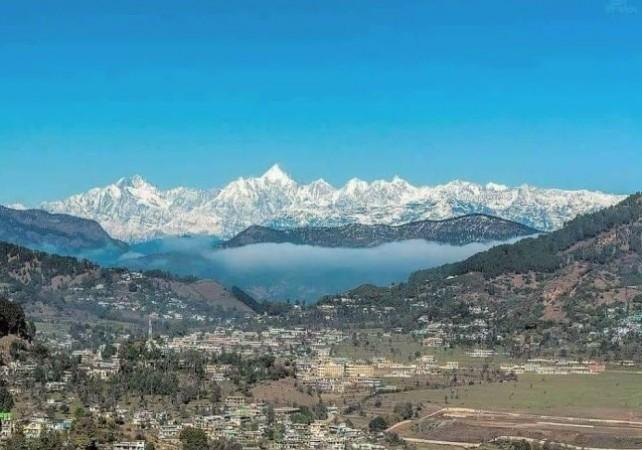He says it is not just the beauty but simplicity and the realisation that mountains make better human beings out of us -- fitter, calmer and happier -- that continues to fascinate him towards them.
To ensure that the magnetism of the Himalayan ranges remains intact, he set up 'Healing Himalayas' in 2016, an organisation devoted to cleaning out the trash from the picturesque wonder.
For someone, whose work has been hailed twice by Prime Minister Narendra Modi, the idea came to Pradeep Sangwan, who lives between Kullu and Shimla, while conversing with some shepherds.
"I realised that the community of shepherds and travellers from urban spaces had completely different approaches when it came to trekking and treating the natural world. Considering I lived in both worlds, I thought why not learn from shepherds and eventually do my bit for the environment?" he tells IANS.

The organisation, which has so far collected 800,000 kg of waste and has been collecting five tonnes of non-biodegradable waste daily since July 2022 through its Material Recovery Facilities (MRF) aims at introducing a circular economy in rural and urban Himalayas.
"MRF is the collection, segregation, and storage centre, and once we have eight tonnes of recyclable material ready, we transport it to a recycling unit. I feel they (MRFs) should be given equal importance to a school, primary health care center, temple or community centre."
Originally from district Charkhi Dadri (Haryana), Sangwan who studied at Rashtriya Military School in Ajmer says his sense of social responsibility comes from his father, who is a Khap leader. "He has been a social worker all his life and has never sought any recognition. It is sad to see people's approach towards khap panchayats. Maybe they need more recognition than what they have right now."

Stressing that the movement by his organisation would have been impossible to sustain without local participation, he adds: "Although, during the initial period, it was less, after consistent ground action, we were able to engage local communities proactively."
Sanghwan feels that in order to make ascertain instrumental change viz a viz waste disposal, it is paramount that schools start organizing cleaning and awareness sessions.
Citing Indore's example, the cleanest city in India where citizens made it possible to achieve the same by their pro-active involvement, he says that he is trying to figure out what is the key to creating a ripple effect.
"No matter what an individual does at one location, the key solution is when the community starts replicating the idea. So for me what's important is to build trust around waste management that it is possible and doable," he noted.
(With inputs from IANS)

















